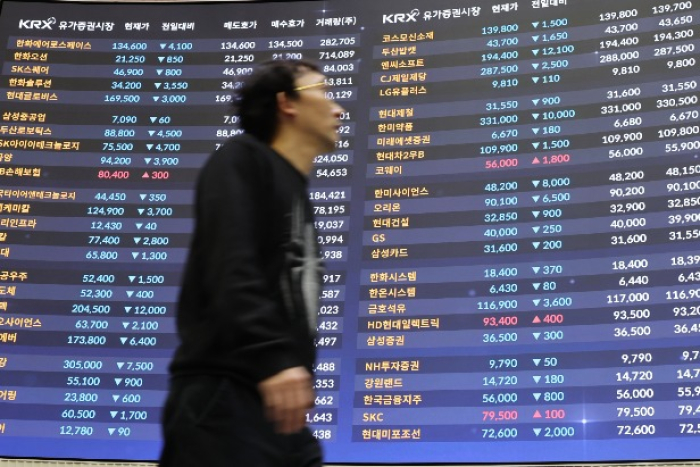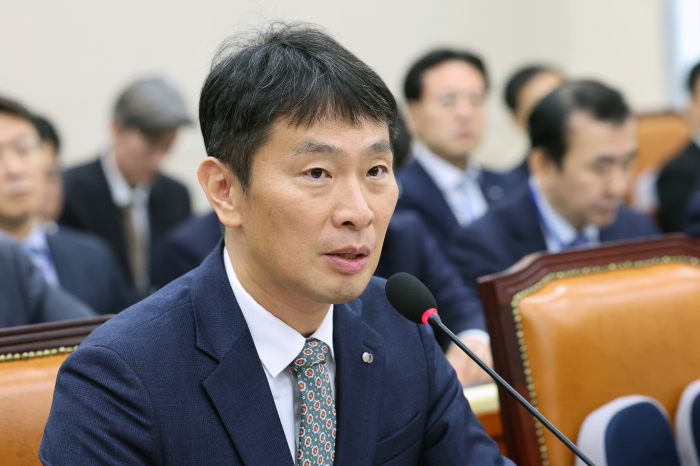Korea to put poison pill adoption on new policy agenda
Dual-class stock and board directors' fiduciary duty for shareholders could be included in a revised commercial law
By Jun 14, 2024 (Gmt+09:00)
Samsung steps up AR race with advanced microdisplay for smart glasses


When in S. Korea, it’s a ritual: Foreigners make stops at CU, GS25, 7-Eleven


Maybe Happy Ending: A robot love story that rewrote Broadway playbook


NPS yet to schedule external manager selection; PE firms’ fundraising woes deepen


US auto parts tariffs take effect; Korea avoids heavy hit



South Korea will put the adoption of poison pills and dual-class shares on the new policy agenda at a meeting with business leaders this month, where the country’s financial regulator expects to outline a revision to the Commercial Act aimed at protecting companies against hostile takeover attempts.
The move comes as activist funds are exerting ever-increasing clout over critical corporate decisions, against government efforts to unlock corporate value through shareholder-friendly measures.
On June 26, the regulatory Financial Supervisory Service will host a corporate governance policy seminar with the Korea Listed Companies Association, the Kosdaq Listed Companies Association and the Federation of Korean Industries, according to sources from the government and relevant industries.
At the gathering, they will discuss introducing policy measures such as poison pills and dual-class shares.
“To unlock corporate value, various policy measures need to be introduced for management rights protection,” a senior government official told The Korea Economic Daily. “To this end, we will listen to various opinions.”
At the seminar, Kim Ji Pyoung, an attorney at South Korea’s largest law firm, Kim & Chang, will give a presentation on the topic of poison pills and dual-class stock. There will also be a panel discussion about the measures.
Kim specializes in M&As, private equity and corporate governance.

A poison pill allows shareholders to buy shares of the company at a significant discount to market price to thwart hostile takeover bids. A dual-class stock structure allows certain shareholders to exercise superior voting rights.
Currently, treasury stocks, or shares owned by companies, are the most widely used tools for management defense. They do not carry voting rights and do not pay out dividends.
To buy back shares and increase their ownership, companies tap into retained earnings. Sometimes those shares are canceled to improve shareholder value as demanded by activist shareholders. Such activist moves could undermine companies' growth potential.
Alternatively, companies' top management sell treasuries to white knights, or friendly investors.

FIDUCIARY DUTY
A possible revision to the Commercial Act would include expanding board of directors' fiduciary duties to act in the best interests of not only the comany but also shareholders, according to government sources.
A total of 77 South Korean companies faced hostile takeover threats from activist funds last year, according to the FKI, a business lobby group.
The figure is up 57% from that for 2022 and the third-largest number among the 23 countries surveyed, compared with 550 for the US and 103 for Japan.
Back in 2009, South Korea attempted to introduce poison pills, which backfired due to opposition parties’ objections.
Meanwhile, on Thursday the government hinted at lifting the blanket ban on short selling in April of next year.
Write to Ik-Hwan Kim and Han-Gyeol Seon at lovepen@hankyung.com
Yeonhee Kim edited this article.
-
 Shareholder activismActivist funds to wage proxy battle with Samsung C&T
Shareholder activismActivist funds to wage proxy battle with Samsung C&TFeb 15, 2024 (Gmt+09:00)
2 Min read -

-
 Shareholder activismKT&G faces another legal battle with Korean activist fund
Shareholder activismKT&G faces another legal battle with Korean activist fundOct 10, 2023 (Gmt+09:00)
2 Min read -
 Shareholder activismJB Financial wins proxy fight against activist fund Align Partners
Shareholder activismJB Financial wins proxy fight against activist fund Align PartnersMar 31, 2023 (Gmt+09:00)
1 Min read -
 Shareholder activismISS, Glass Lewis urge shareholders to veto activist fund's requests on JB
Shareholder activismISS, Glass Lewis urge shareholders to veto activist fund's requests on JBMar 17, 2023 (Gmt+09:00)
2 Min read -
 Shareholder activismActivist fund Tcha Partners calls for Namyang Dairy to buy back shares
Shareholder activismActivist fund Tcha Partners calls for Namyang Dairy to buy back sharesFeb 27, 2023 (Gmt+09:00)
3 Min read -
 Shareholder activismSouth Korean companies rattled by activist shareholders
Shareholder activismSouth Korean companies rattled by activist shareholdersFeb 06, 2023 (Gmt+09:00)
4 Min read -
 Corporate governanceActivist fund steps up pressure for SM Ent's governance reform
Corporate governanceActivist fund steps up pressure for SM Ent's governance reformAug 18, 2022 (Gmt+09:00)
1 Min read -



